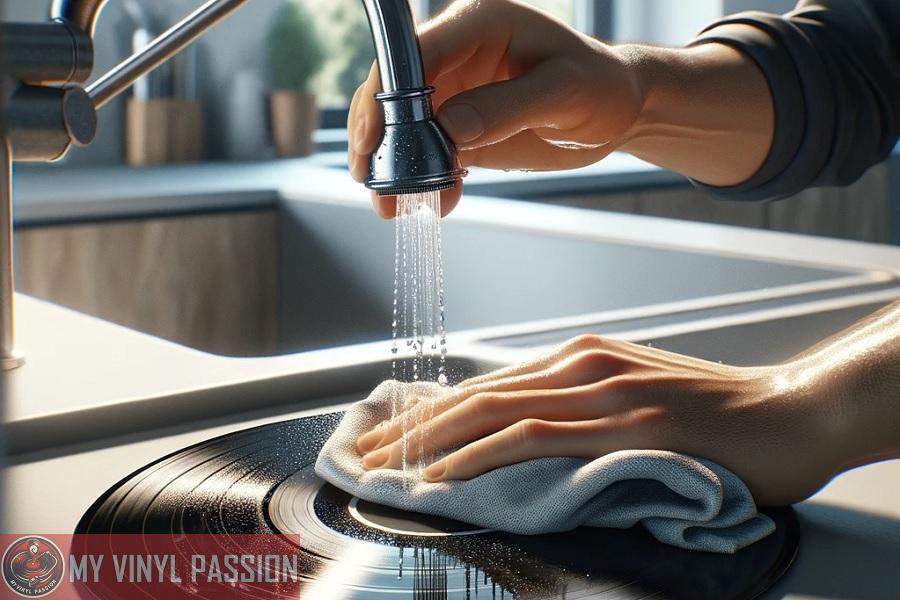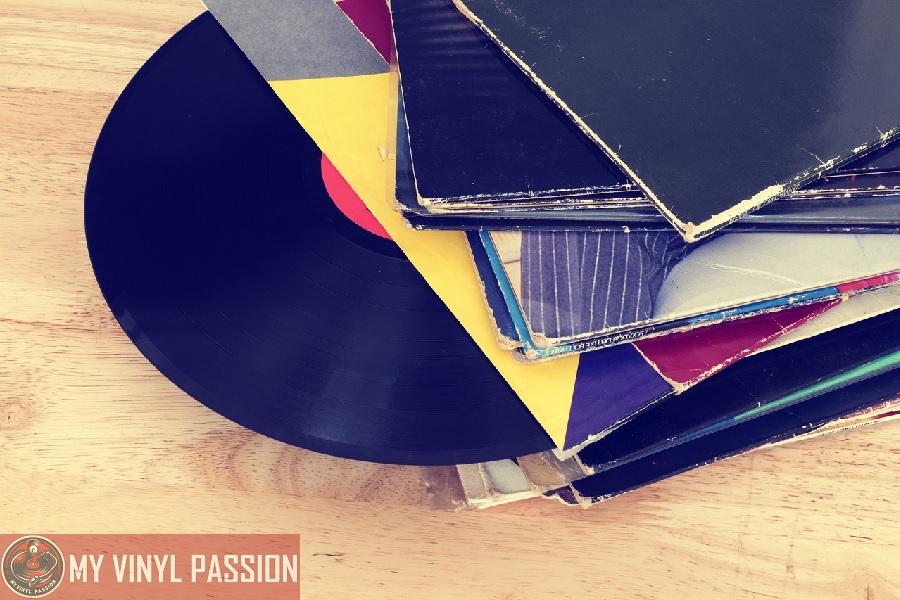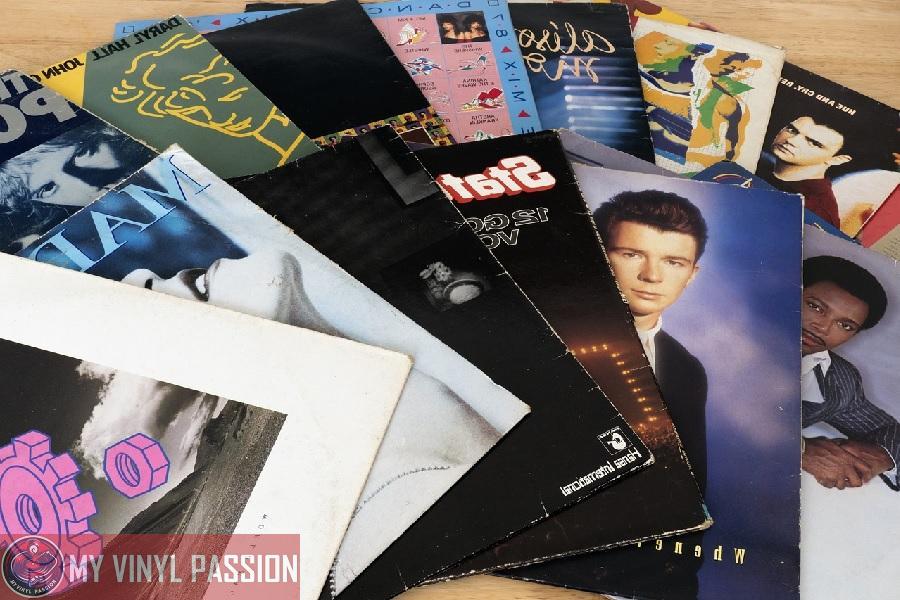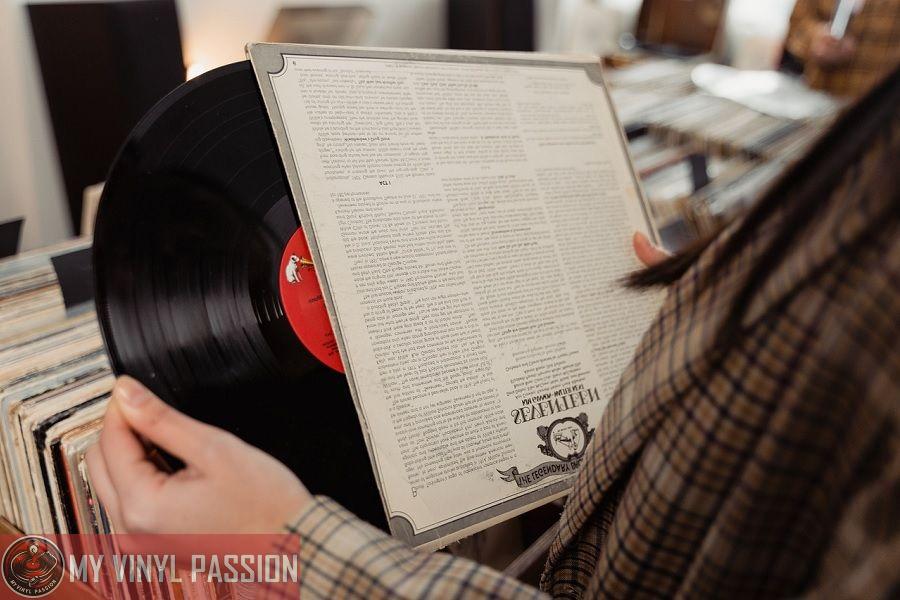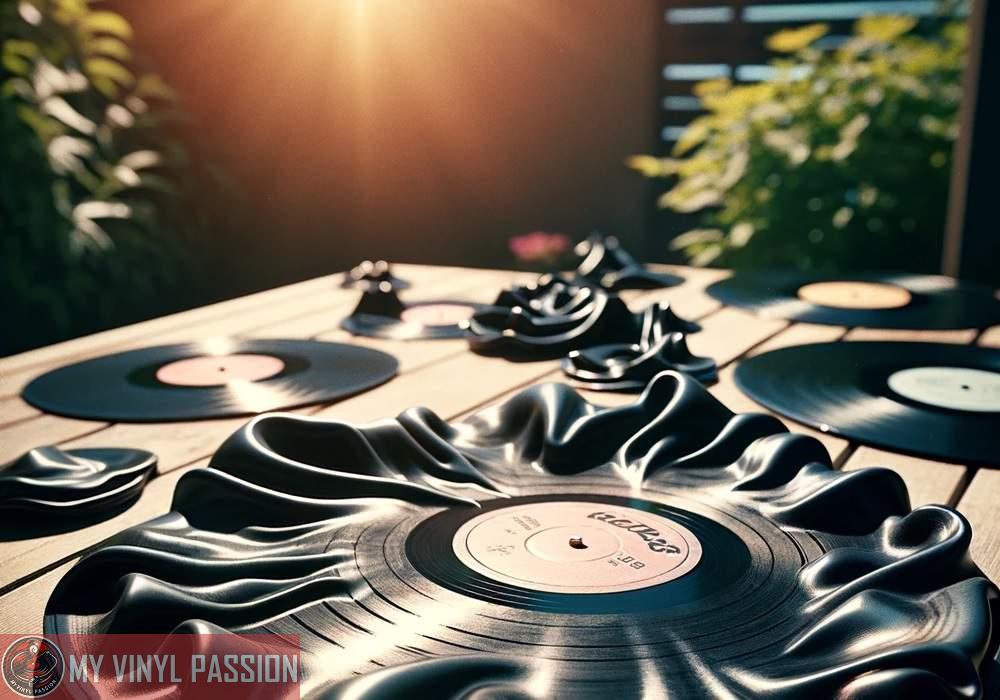Maintaining the quality of your vinyl records involves regular cleaning to preserve their sound and longevity.
Water can be used to clean vinyl records, but it should not be tap water due to potential mineral content that can leave residue on the records. Instead, distilled water is recommended as it’s free from contaminants that could harm the vinyl surface.
When cleaning your records with water, it’s critical to use a soft, lint-free cloth to avoid scratching the delicate material. Gently wiping the record in a circular motion along the grooves can remove dust and dirt without causing damage.
In Summary
Mildly warm water can be used for basic cleaning of vinyl records, especially to remove dust and light dirt.
It’s recommended to use distilled water instead of tap water to avoid mineral deposits on the vinyl surface.
A few drops of mild, non-abrasive detergent can be added to the water for more effective cleaning.
After cleaning, vinyl records should be thoroughly dried with a soft, lint-free cloth to prevent water spots and potential damage.
For a deeper clean, specifically designed vinyl record cleaning solutions mixed with distilled water can be applied.
These solutions often help in removing oily fingerprints and stubborn grime without affecting the record’s grooves. It’s also essential to ensure that the record is completely dry before playing it again to prevent damage to both the record and the turntable needle.
Careful handling of your records during this process is necessary to maintain their condition.
From using the right type of water to drying the record properly, every step you take contributes to preserving your vinyl records in pristine shape for optimal audio quality.
While water is a simple and accessible cleaning agent, the right technique and materials will ensure that your vinyl record cleaning efforts are both safe and effective.
Understanding Vinyl Records and Dirt Accumulation
Maintaining the quality of your vinyl records requires understanding how they interact with their environment. This includes recognizing the types of debris they attract and the best practices to keep them clean.
The Nature of Vinyl Records
Vinyl records are made from polyvinyl chloride (PVC), which generates a static charge that can attract dust and dirt.
This static electricity can cause these particles to cling tightly to the grooves of your records, potentially affecting sound quality. It is crucial to handle your vinyl properly to minimize the risk of fingerprints, which can also contribute to the accumulation of dust and debris.
Common Types of Dirt and Debris
When considering the types of contaminants your vinyl records may accumulate, dust is the primary offender. It’s a mixture of fine particles, including fabric fibers, hair, and skin cells. However, debris can encompass a broader range of materials like:
- Dust: Fine particles that can block grooves and degrade audio fidelity.
- Dirt: Grittier particles that can scratch the vinyl surface if not carefully removed.
- Fingerprints: Oils from skin contact that can attract more dust and create a residue.
Aside from dust and fingerprints, other common elements contributing to soiling your vinyl records include:
- Airborne pollutants: Smoke and other environmental pollutants can settle on record surfaces.
- Mold spores: If stored in damp environments, vinyl can harbor mold growth, which degrades the record material.
It’s essential to regularly clean your vinyl records to preserve both their visual and acoustic integrity as part of your cherished record collection.
Materials and Tools for Cleaning Vinyl Records
Proper maintenance of your vinyl records is essential to ensure their longevity and sound quality. Use the right materials and tools, including a gentle cloth and an effective cleaning solution, for safe and thorough cleaning.
Choosing the Right Cleaning Cloth
When cleaning your records, a microfiber cloth is indispensable. This type of cloth is gentle on vinyl and will not leave any scratches or lint behind. Ensure that the microfiber cloth is clean and free of any debris before use.
Avoid using paper towels or other abrasive materials, as they can damage the record’s surface.
Selecting an Appropriate Cleaning Solution
For the cleaning solution, you have a few options. You can either purchase a record cleaning kit that comes with a pre-made solution, or you can create your own. If you opt to make your own, a mix of distilled water and isopropyl alcohol can be effective.
The standard ratio is one part alcohol to three parts distilled water, but make sure the alcohol concentration is no higher than 70% to avoid damaging the vinyl. Alternatively, you can find specially formulated sprays for vinyl cleaning.
Always steer clear of tap water or harsh chemicals that can cause damage or leave residues.
In addition to the cloth and solution, consider using a record brush or anti-static brush before and after playing your records to gently remove dust and reduce static build-up. Remember to follow the manufacturer’s instructions of any record cleaning kit or tool to ensure the best care for your vinyl collection.
Step-by-Step Guide to Wet Cleaning
Wet cleaning vinyl records is a delicate process that, when done properly, can restore the quality of your record’s sound by removing accumulated dust and dirt. Use distilled water to prevent mineral deposit damage, and always handle your records with care to maintain their condition.
Preparing the Cleaning Solution
Begin by creating an effective vinyl cleaning solution. Mix a few drops of mild dish soap with distilled water in a spray bottle. The ratio should be around 1 part soap to 20 parts water. Avoid using tap water as it could contain minerals that might harm the vinyl record’s surface.
The Cleaning Process
For a deep clean, start by lightly spraying the vinyl cleaning solution onto the record, ensuring it’s moist but not soaked. Gently clean the record with a soft, lint-free cloth, following the grooves in a circular motion. Do it a few times, always in the direction of the grooves.
Rinsing and Drying
After cleaning, rinse the record with distilled water to remove any soap residue. Then, with a clean cloth, carefully dry the record, minimizing contact to reduce static build-up. Finally, allow the record to air dry completely on a soft rack or another clean surface to ensure there’s no moisture left on the vinyl.
Additional Cleaning Methods and Tips
Maintaining your vinyl records involves regular dust removal and careful handling to prevent damage from fingerprints and debris. Incorporating both dry and wet cleaning methods can ensure the longevity and quality of your collection.
Dry Cleaning Techniques
Dry cleaning should be your go-to method for routine maintenance of your records. Use an anti-static cleaning brush to gently sweep dust from the surface before each play.
The brush’s fine bristles dislodge minute particles from the grooves, preserving the crisp sound quality of your vinyl. Hold the brush lightly against the record as it spins on the turntable for an even and thorough clean.
Handling and Preventing Fingerprints
Handling your records with care is crucial in preserving their condition. Always pick up a vinyl record by its edges or label, avoiding contact with the grooves where possible. If fingerprints do occur, use a soft, lint-free cloth to gently wipe them away.
Consider using nitrile gloves when you handle your records to prevent natural oils from your skin transferring onto the vinyl surface.
When to Perform a Deep Clean
A deep clean may be necessary when you notice a significant build-up of dirt or if the stylus starts to accumulate grime, affecting sound quality. For this, a vinyl record cleaning kit can be used. These kits often include a solution specifically designed for vinyl and a clean microfiber cloth.
How often to clean vinyl records varies depending on use, but a thorough wash every few months or after extended storage is a good rule of thumb. Remember, after deep cleaning, allow your records to dry completely before playing or storing them to avoid any water damage.
Proper Storage and Maintenance of Vinyl Records
To ensure the longevity and quality of your vinyl records, proper storage and maintenance are crucial. Adequate measures will protect your records from damage and maintain their pristine sound.
Storing Your Vinyl Records
When you store vinyl records, it’s vital to keep them in a vertical position to prevent warping. Use sturdy dividers to support them and to keep your record collection organized.
Each record should be placed in its own inner sleeve, which can offer protection from dust and scratches. The inner sleeve should then be inserted into the record’s jacket, which provides an additional layer of protection.
For extra care, consider using plastic sleeves to shield the jacket, especially if you’re storing in areas prone to fluctuations in humidity and temperature. It’s best to store your vinyl in a cool, dry place away from direct sunlight or heat sources.
Ongoing Care and Record Handling
Regular record care is fundamental in maintaining the quality of your vinyl. Always handle your records by the edges and the label to avoid transferring oils from your skin to the grooves.
Before and after playing a record, gently remove dust with a soft, anti-static brush specifically designed for vinyl cleaning.
Whenever your records need a deeper clean, use a record cleaning solution and a microfiber cloth or a record-cleaning device. Avoid using tap water directly on your records, as it often contains minerals and impurities that can degrade the vinyl’s quality over time.
If water is necessary, distilled or deionized water is the better choice to avoid any potential harm to the grooves of your records.
FAQs
Is it safe to clean vinyl records with water?
Yes, you can safely clean vinyl records with water, preferably distilled, to remove dust and light dirt, but it should be done carefully to avoid damage.
Can I use tap water to clean my vinyl records?
It’s better to use distilled water rather than tap water for cleaning vinyl records, as tap water may contain minerals that can leave residues on the record surface.
Should I add anything to the water for cleaning vinyl records?
A few drops of mild, non-abrasive detergent can be added to distilled water for a more effective clean, but avoid using harsh chemicals or alcohol-based cleaners.
How should I dry my vinyl records after cleaning them with water?
After cleaning, gently wipe the records with a soft, lint-free cloth and allow them to air dry completely before playing or storing them to prevent water spots and damage.
What is the best method to apply water when cleaning a vinyl record?
Use a soft, clean cloth or a record-cleaning brush, lightly dampened with the water-detergent solution, and clean the record in a circular motion following the grooves; avoid getting the record label wet.
